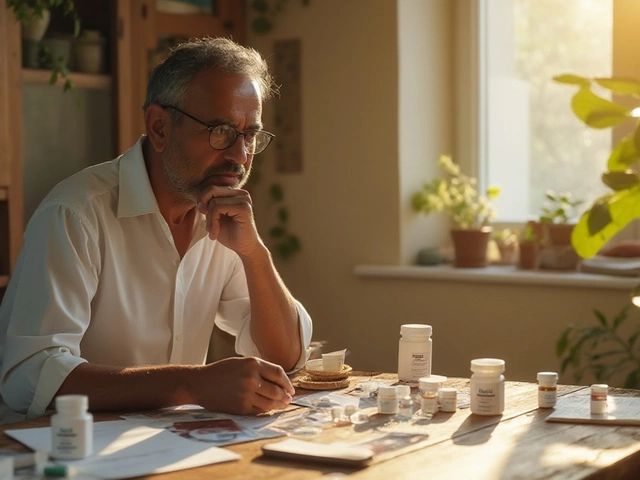Kidney Health: Simple Ways to Keep Your Kidneys Strong
Kidneys work 24/7 to filter waste, balance fluids, and control blood pressure. Most of us take them for granted until something feels off. The good news? Small changes in daily life can make a big difference in how well your kidneys perform.
Everyday habits that protect kidneys
First off, stay hydrated. Drinking enough water helps the kidneys flush out toxins. Aim for at least 1.5 to 2 liters a day, but adjust if you’re active, live in a hot climate, or have a health condition that limits fluid intake.
Watch your salt intake. Too much sodium forces kidneys to work harder to excrete excess salt, which can raise blood pressure. Try to keep processed foods, salty snacks, and fast‑food meals to a minimum. Flavor meals with herbs, lemon, or a pinch of pepper instead.
Sugar isn’t just a calorie problem—it can damage tiny blood vessels in the kidneys. If you have diabetes, keep blood sugar under control with regular monitoring, balanced meals, and any meds your doctor prescribes.
Protein is essential, but overdoing it can strain the kidneys. Stick to moderate portions of lean meats, beans, or dairy. For most adults, about 0.8 grams of protein per kilogram of body weight works fine.
Avoid smoking and limit alcohol. Both can impair blood flow to the kidneys and increase the risk of chronic kidney disease. Quitting smoking and keeping alcohol to one drink a day (or less) reduces the burden on these organs.
When to see a doctor about kidney issues
Pay attention to changes in urination. If you notice blood, foam, or a sudden increase or decrease in volume, it’s time to get checked. Persistent back pain near the kidneys, swelling in ankles or eyes, or unexplained fatigue also warrant a visit.
Regular check‑ups are key, especially if you have risk factors like high blood pressure, diabetes, or a family history of kidney disease. A simple blood test for creatinine and a urine test for protein can catch problems early.Don’t ignore medication side effects. Over‑the‑counter painkillers, especially NSAIDs like ibuprofen, can hurt kidneys if taken often or in high doses. Talk to your pharmacist or doctor about safer alternatives for chronic pain.
Finally, keep a list of your health numbers—blood pressure, blood sugar, and weight. Tracking these helps you see trends and act before a problem becomes serious.
Taking care of your kidneys doesn’t require a complete lifestyle overhaul. Small, consistent steps—drinking water, cutting back on salt, watching sugar, and getting regular check‑ups—go a long way in keeping these vital organs working smoothly for years to come.

Can Too Much B12 Damage Kidneys? Cut Through the Confusion
People often worry about the safety of supplements, and vitamin B12 is no exception. This article digs into whether taking too much B12 can hurt your kidneys, especially if you already use herbal supplements. We’ll sort fact from rumor, look at real research, and talk about what you actually need to know about B12 and kidney health. You’ll also find actionable tips for safe supplement use. Everything is explained in plain language, with a focus on what matters most for your health.

Discovering the Top Diabetes Medication in 2025
Jan, 3 2025

Three Agonizing Surgeries You Should Know About
Apr, 5 2025

Age Limit in IVF: What You Need to Know
Feb, 13 2025

